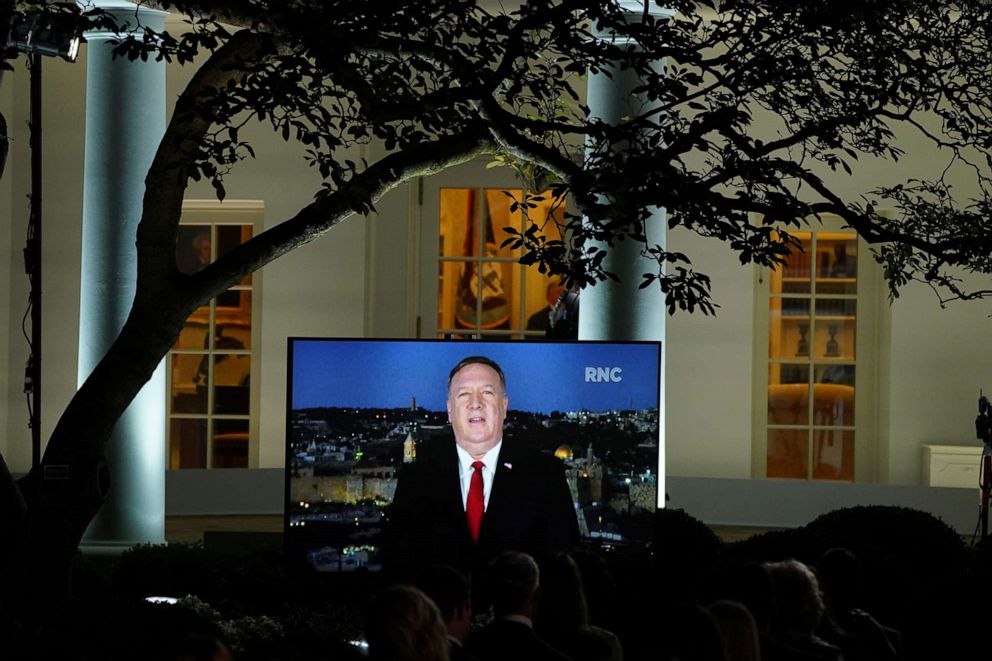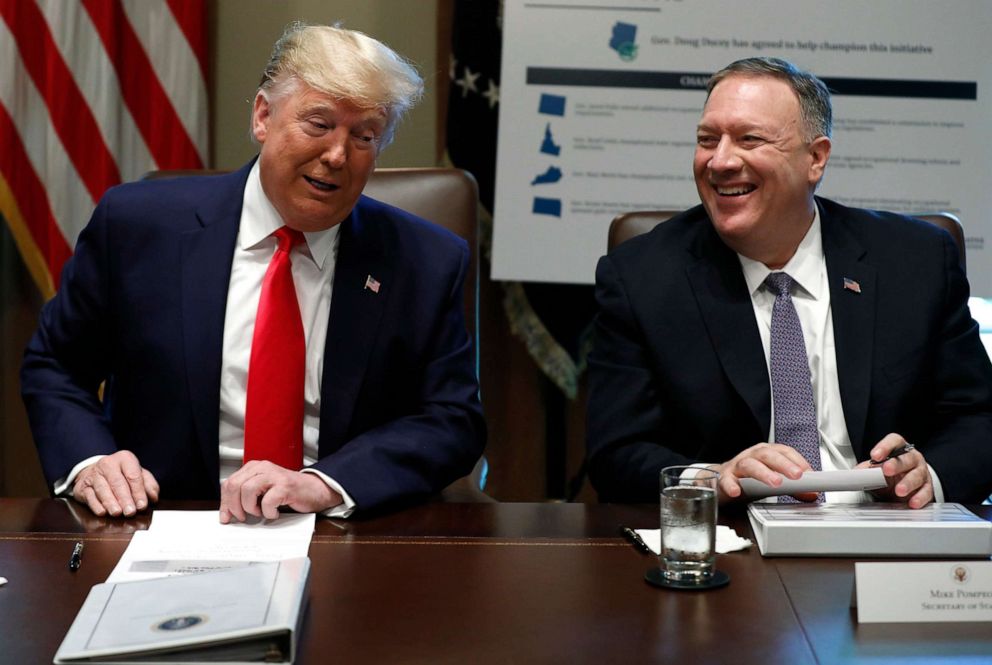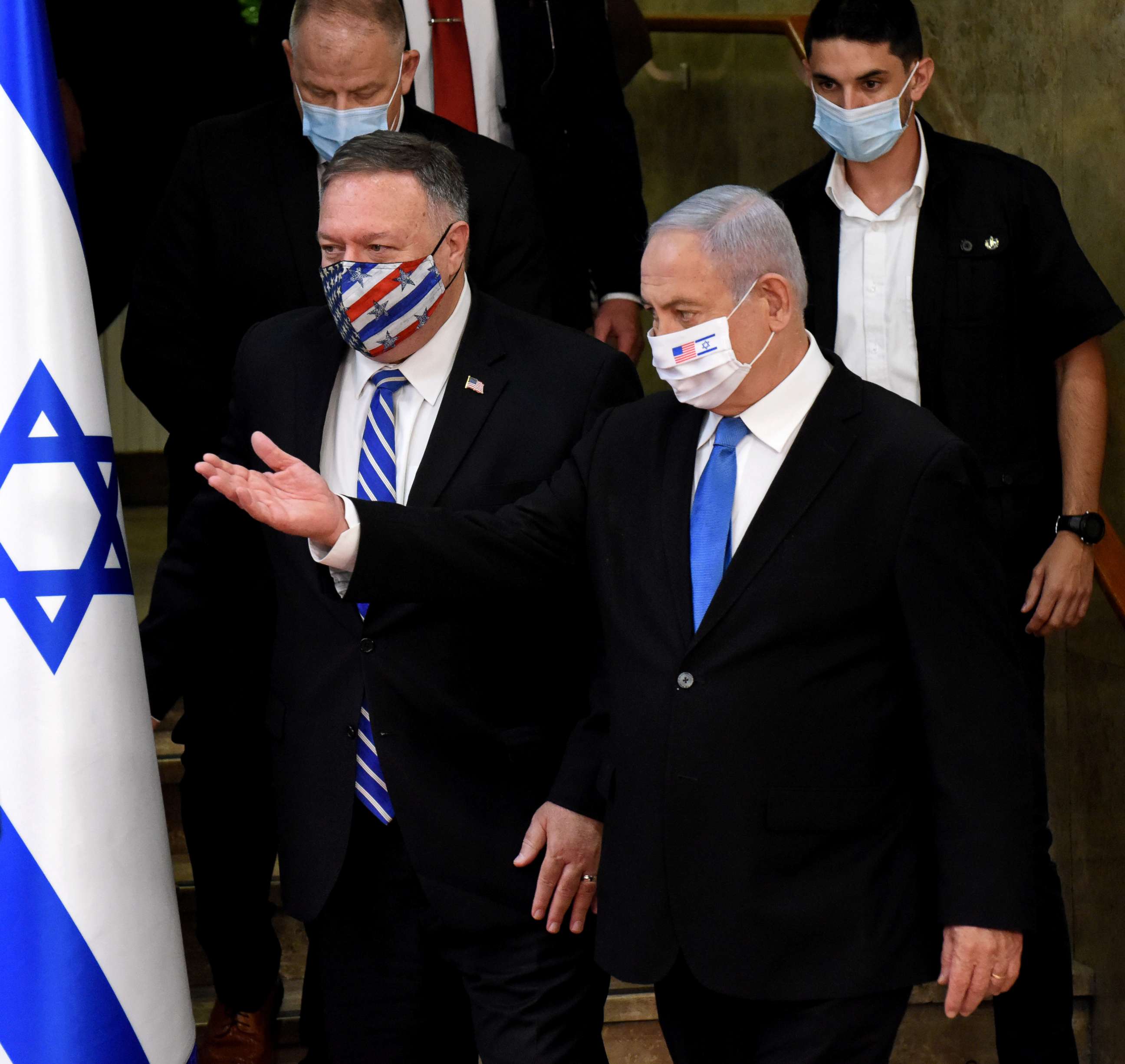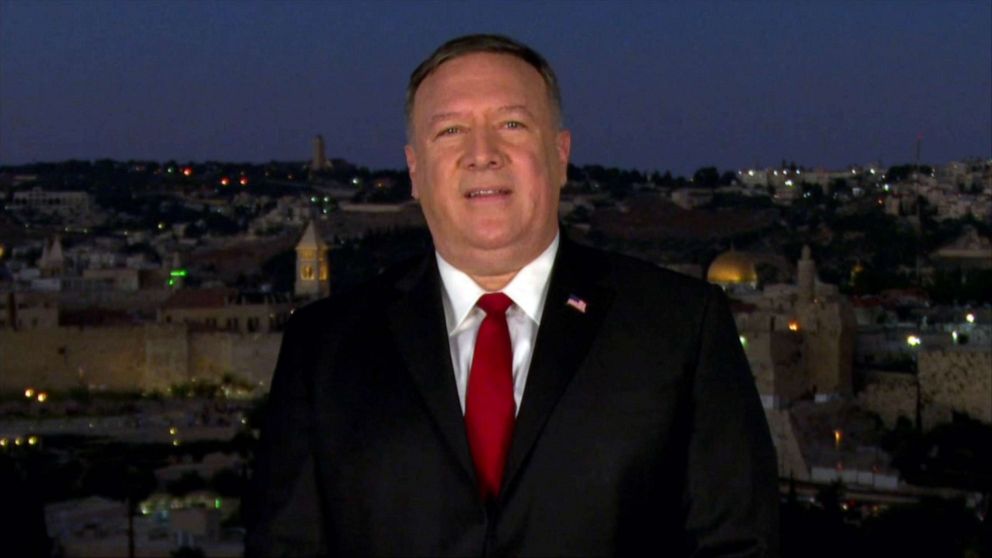Pompeo defies his own policy by praising Trump in unprecedented convention speech
Secretary of State Mike Pompeo offered a robust defense of President Donald Trump's foreign policy in an unprecedented speech at the Republican National Convention.
No other sitting secretary of state has delivered a speech like this before their party's political convention. By doing so, Pompeo broke a decades-old taboo and his own policies for the department.
The speech sparked widespread criticism, including from former top Republican officials and even some Israeli officials, now wary of how Trump has politicized U.S.-Israel policy.
The House committee tasked with overseeing the State Department announced it was investigating the speech hours before it aired.
"Delivering on this duty to keep us safe and our freedoms intact, this president has led bold initiatives in nearly every corner of the world," Pompeo said, diving into specific policies without mentioning his role in them.

The four-minute address was taped Monday in between Pompeo's meetings in Jerusalem, his first stop on a four-day tour of the region.
While Pompeo filmed the speech on an official overseas trip, the State Department said he delivered it "in his personal capacity." In a wink to that, Pompeo opened his remarks by saying he has "a big job -- as Susan's husband and Nick's dad," but leaving out any mention of the department.
No State Department resources or staff were involved in the speech, a department spokesperson said, although some staff, like diplomatic security agents, are with the secretary virtually at all times.
The Hatch Act forbids federal employees from engaging in political activities unless they're off duty, outside a federal facility and not using federal property -- something Pompeo chose to disregard when he made his speech.

A Republican National Committee official told ABC News the party paid for the shoot and "all costs associated." Four teams of lawyers -- from the White House, State Department, the Republican National Convention and Pompeo's personal counsel -- cleared his remarks, the official added.
While the speech may not have violated a law, Pompeo has implemented an even more stringent policy that his speech seemed to cross.
In a December 2019 memo, his legal adviser told all political appointees that they were prohibited from "engag[ing] in political activity in concert with a partisan candidate, political party, or partisan political group," and specifically said that "Senate-confirmed presidential appointees," like Pompeo, "may not even attend a political party convention or convention-related event."
Pompeo himself reiterated that policy just last month in a cable to all U.S. missions overseas. Pointing specifically to that December memo, he said, "It is important that the department's employees do not improperly engage the Department of State in the political process, and that they adhere to the Hatch Act and Department policies in their own political activities."
Rep. Joaquin Castro, D-Tex., chair of the House Foreign Affairs Committee's oversight subcommittee, announced that he was launching an investigation into Pompeo's speech hours before it aired. In a letter to Deputy Secretary of State Stephen Biegun, Castro requested that documents related to the decision be turned over in one week, including when the trip was first planned and what resources may have been used.
Beyond the legal fight over the personal or official, the speech ignited swift criticism of Pompeo, who, as the nation's top diplomat, put himself in the middle of partisan politics, further incinerating the old adage that politics stop at the water's edge.

"The idea that @SecPompeo can speak at #RNC2020 in his 'personal capacity' betrays a basic misunderstanding. Any individual gives up his/her personal capacity to speak on foreign policy when he/she takes the job. It is public service, not political service," tweeted Richard Haass, the president of the Council on Foreign Relations who acted as a senior State Department and White House official in both Bush presidencies.
But Pompeo, the last surviving member of Trump's national security cabinet, has always stitched himself tightly to the president. He's not been shy about his own presidential ambitions, garnering swift criticism from congressional Democrats.
Some Israeli officials have also expressed concerns about Pompeo's speech, wary of how Trump has made certain decisions in U.S.-Israel policy to stir political support at home. Last week, the president told a crowd of supporters he had moved the U.S. embassy to Jerusalem "for the evangelicals."
"It's amazing with that," he said. "The evangelicals are more excited about that than Jewish people."
A senior political source in Israel's parliament told ABC News, "The principle of bipartisan support is fundamental to the U.S.-Israeli relationship. This principle should be honored by all sides."
At least the last six secretaries of state, from both Republican and Democrat administrations, did not attend their parties' conventions while in office. William Rogers, the secretary of state under President Richard Nixon, addressed the 1972 convention to pay tribute to his former boss, President Dwight Eisenhower, according to the Eisenhower Library, but it's unclear if he spoke about the presidential race, too.
"As secretary of state, I am obliged not to participate in any way, shape, fashion, or form in parochial, political debates. I have to take no sides in the matter," Colin Powell said in 2004, skipping the Republican National Convention while serving under George W. Bush. Powell, a Republican, endorsed former Vice President Joe Biden in this year's election.
ABC News' Jordana Miller contributed to this report from Jerusalem.




